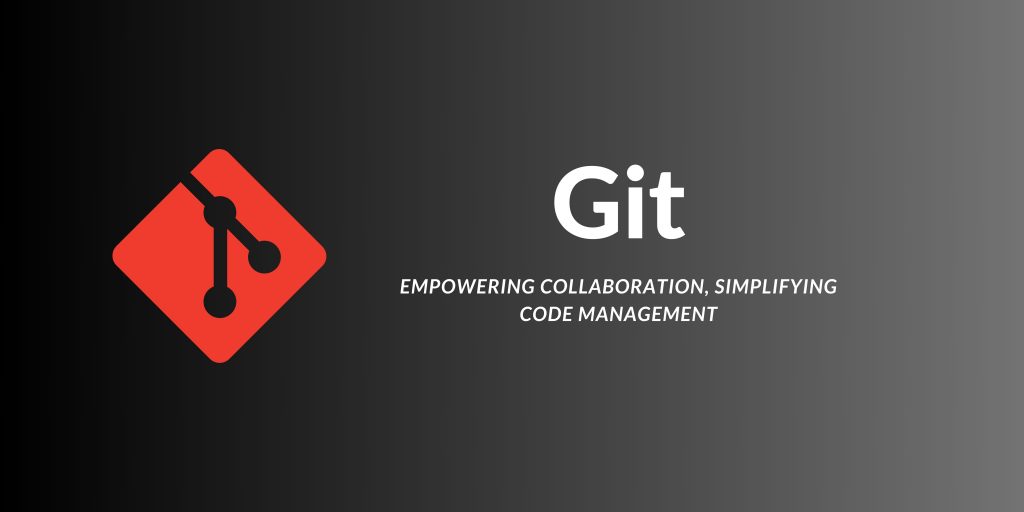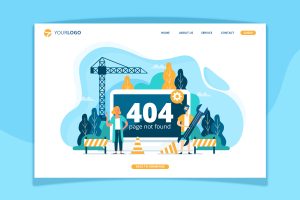In today’s fast-paced digital world, web development is the driving force behind our online experiences. From e-commerce platforms that power our shopping sprees to the social media networks that keep us connected, web applications are the cornerstone of our digital lives. Among the array of technologies that enable these applications, Next.js has emerged as a prominent choice, celebrated for its exceptional performance, scalability, and developer-friendly features. As the demand for Next.js developers continues to surge in the USA, it becomes increasingly important to delve deeper into the skill set that defines a successful Next.js app developer in this thriving ecosystem.
Mastering the art of Next.js development is not merely about learning a single framework; it’s about acquiring a comprehensive skill set that encompasses JavaScript fundamentals, React expertise, Next.js intricacies, and much more. In this blog, we’ll embark on a journey to explore the multifaceted skill set required to excel as a Next.js developer in the United States. Whether you’re an aspiring developer looking to embark on this path or a seasoned pro aiming to further refine your skills, join us as we unravel the key competencies that define a successful Next.js app developer in the USA.
Exploring Next.js
Next.js is a powerful and versatile open-source framework for building modern web applications. It’s based on JavaScript, which is one of the most widely used programming languages, and is primarily known for its association with React, another popular JavaScript library for building user interfaces. Next.js takes web development to the next level by providing a robust set of tools and features that simplify the creation of complex and high-performance web applications.
One of the key highlights of Next.js is its flexibility. It allows developers to choose between server-side rendering (SSR) and static site generation (SSG) based on the specific requirements of their project. SSR is ideal for applications that need dynamic content on each request, such as e-commerce sites, while SSG is perfect for websites with mostly static content, like blogs or marketing sites. Next.js also excels in the area of SEO (Search Engine Optimization). By enabling server-side rendering, it ensures that web pages are pre-rendered with content before being served to the client, resulting in better search engine rankings and improved user experiences.
Additionally, Next.js simplifies the development process by offering features like automatic code splitting, routing, and an intuitive API for data fetching. This allows developers to focus more on creating features and less on configuring and optimizing the application. The framework has gained widespread adoption in the web development community due to its performance, ease of use, and strong community support. It has been embraced by organizations of all sizes, from startups to tech giants, for building a wide range of applications, including e-commerce platforms, social networking sites, and content-driven websites.
Let’s dive deeper into each of the key skills for a successful Next.js app developer in the USA
Exploring the skill set that sets apart a successful Next.js app developer in the USA requires delving deeper into each crucial competency. In the following sections, we’ll dissect these key skills, providing valuable insights to help you thrive in the dynamic world of Next.js development.

1. Strong JavaScript Fundamentals
JavaScript is the foundation of web development, and Next.js heavily relies on it. A Next.js developer should have an in-depth understanding of JavaScript. This means not only knowing the basic syntax but also grasping advanced concepts
Syntax:
Understanding how variables, functions, loops, and conditional statements work in JavaScript is fundamental. A developer should be able to write clean and efficient code using these basic constructs.
Advanced Concepts:
Concepts like closures (functions that remember their lexical scope even when executed outside that scope), callbacks (functions passed as arguments to other functions), and promises (a way to handle asynchronous operations) are critical. These concepts enable developers to work with complex asynchronous operations effectively.
ES6+ Features:
ES6 and later versions of JavaScript introduce powerful features like arrow functions (concise function syntax), destructuring (easily extracting values from objects and arrays), template literals (string interpolation), and spread/rest operators (for manipulating arrays and objects). Proficiency in these features helps developers write more concise and readable code.
2. React Expertise

Next.js builds upon React, a JavaScript library for building user interfaces. A successful Next.js developer should have a deep understanding of React.
Components:
React revolves around the concept of components. Developers should be adept at creating and managing these building blocks of the user interface. This includes structuring components, organizing them into reusable pieces, and managing their lifecycle.
State and Props:
React components can have state (mutable data) and props (immutable data passed from parent to child components). Developers should know how to manage these effectively to build interactive and dynamic user interfaces.
React Hooks:
React Hooks, introduced in React 16.8, are essential for managing state and side effects in functional components. Next.js developers should understand how to use hooks like useState and useEffect to build modern React applications.
3. Next.js Fundamentals
Next.js introduces specific concepts and features that set it apart from standard React development
Server-Side Rendering (SSR):
SSR is a Next.js feature that enables rendering React components on the server before sending them to the client. This enhances SEO and initial load times. Developers should understand how to implement SSR in Next.js applications.
Static Site Generation (SSG):
SSG is another key feature of Next.js that allows you to generate static HTML at build time, providing a significant performance boost. Developers should know when and how to use SSG for optimal results.
Routing:
Next.js simplifies client-side routing by providing an easy-to-use routing system. Developers should be proficient in setting up routes, handling dynamic routes, and navigating between pages in a Next.js application.
Data Fetching Methods:
Next.js provides data fetching methods like `getStaticProps` and `getServerSideProps` to fetch data at build time or runtime. Developers should be able to choose the appropriate method based on project requirements.
Related : How to Become a next.js Developer in the USA
4. CSS and Styling
Creating visually appealing and responsive user interfaces is a crucial aspect of web development
CSS Basics:
A Next.js developer should have a strong grasp of CSS basics, including selectors, properties, values, and CSS layouts (such as flexbox and grid).
CSS Preprocessors:
Familiarity with CSS preprocessors like SASS or LESS can make styling more efficient. These preprocessors offer features like variables, nesting, and mixins to streamline the styling process.
5. API Integration
Web applications often rely on data from external sources. Next.js developers should be adept at integrating APIs
RESTful APIs:
Understanding RESTful principles and making HTTP requests to REST APIs is essential. Developers should know how to fetch, send, and manipulate data using RESTful endpoints.
GraphQL:
GraphQL is an increasingly popular alternative to REST. A Next.js developer should be familiar with GraphQL concepts and tools like Apollo Client for querying GraphQL APIs.
6. Version Control and Collaboration

Collaboration is an integral part of modern software development
Git:
Developers should be proficient in using Git for version control. This includes commands for initializing repositories, creating branches, committing changes, merging branches, and resolving merge conflicts.
Git Platforms:
Knowledge of popular Git platforms like GitHub, GitLab, or Bitbucket is essential for collaborating with other developers, tracking issues, and managing code repositories.
Collaboration Workflow:
Understanding collaboration workflows, such as pull requests (PRs) and code reviews, is vital for maintaining code quality and ensuring that changes are thoroughly reviewed before being merged into the codebase.
7. Testing and Debugging
To ensure the reliability and stability of Next.js applications, developers must be skilled in testing and debugging
Unit Testing:
Writing unit tests using frameworks like Jest to validate individual components or functions.
Integration Testing:
Creating integration tests to verify that different parts of the application work together as expected.
Debugging Tools:
Proficiency in debugging tools, including browser developer tools and debugging extensions, to identify and fix issues efficiently.
8. Performance Optimization
Optimizing web application performance is a continuous effort
Lazy Loading:
Implementing lazy loading to load assets (such as images or components) only when they are needed, reducing initial page load times.
Code Splitting:
Breaking down the application code into smaller, more manageable chunks that can be loaded on-demand, improving overall performance.
Optimizing Images:
Compressing and optimizing images to reduce their file sizes without sacrificing quality.
9. Continuous Learning and Adaptability
The tech industry evolves rapidly, so Next.js developers must prioritize continuous learning
Stay Current:
Keeping up-to-date with the latest Next.js releases, updates, and best practices is crucial.
Community Engagement:
Engaging with the developer community through forums, online communities, and social media can provide valuable insights and networking opportunities.
Conferences and Courses:
Attending conferences, webinars, and taking relevant online courses can expand knowledge and skills.
Experimentation:
Being open to experimenting with new technologies, libraries, and techniques to solve problems more effectively.
Conclusion
In the ever-evolving landscape of web development, being a successful Next.js app developer in the USA is an achievement that signifies a profound understanding of the digital realm. It’s not just about writing code; it’s about crafting exceptional user experiences, optimizing performance, and adapting to the dynamic demands of the digital world. By honing strong JavaScript fundamentals, mastering React, delving deep into Next.js, and embracing a spectrum of associated skills, developers can stand out in a competitive field where innovation knows no bounds.
The journey to becoming a proficient Next.js app developer doesn’t end here. It’s a perpetual quest for knowledge and growth, one that involves continuous learning, staying abreast of emerging trends, and collaborating within a vibrant developer community. As you embark on or continue your Next.js development journey, remember that your dedication to enhancing your skill set will not only define your success but also contribute to the ever-evolving landscape of web development in the USA and beyond. So, step confidently into this exciting realm, armed with the skills and knowledge to shape the digital future.
Looking to transform these insights into impactful results? Click here to unlock a new realm of possibilities. Your journey towards innovation begins with a single Click.
Frequently Asked Questions
How can someone in the USA enhance their skills as a Next.js app developer?
To improve as a Next.js app developer, individuals can take online courses, participate in coding bootcamps, work on personal projects, and collaborate with experienced developers on open-source projects. Networking and staying updated with industry trends are also crucial.
Are there any specific industry sectors in the USA where Next.js app developers are in high demand?
Yes, Next.js app developers are in demand across various sectors, including e-commerce, healthcare, finance, and technology startups, as they can build dynamic and scalable web applications.
What are the key skills beyond coding that a Next.js app developer should possess?
In addition to coding skills, a successful Next.js app developer should excel in problem-solving, teamwork, communication, and the ability to adapt to evolving technologies and trends.
What programming languages should a Next.js app developer be proficient in?
A successful Next.js app developer in the USA should have a strong grasp of JavaScript and React, as they are the core technologies used in Next.js development.
What is Next.js, and why is it important for app development in the USA?
Next.js is a popular React framework for building web applications. It’s essential in the USA due to its server-side rendering capabilities, which enhance performance and SEO.


























